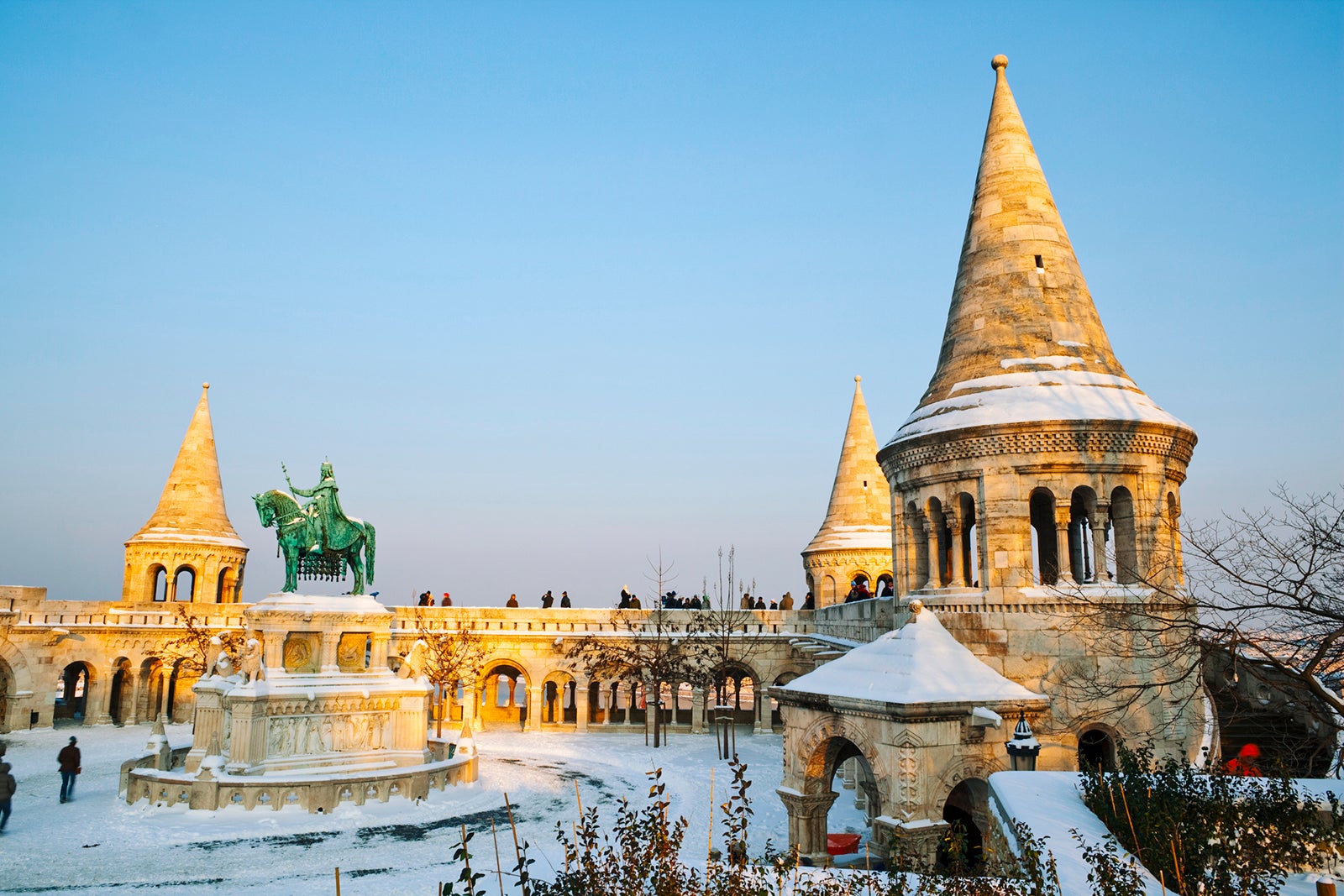The weeks after Thanksgiving might be the best time of year to travel. Prices are low, the weather is often mild and attractions are uncrowded.
Travel expert and TV personality Samantha Brown recently posted a Reel on Instagram stating as much, saying, “The Monday after Thanksgiving marks the beginning of what is known as a dead week. … It represents a huge lull in travel, so things like airfare and hotels are 50% off their summer peak price highs.”
In an email interview with TPG following her video, Brown expanded, saying, “Dead Weeks begin the Monday after Thanksgiving and can run up to two weeks following the holiday. The week is especially ‘dead’ when Thanksgiving falls earlier in the calendar, like it did in 2022 when it was on the 24th.”

“Looking at the first two weeks of December, there is a definite opportunity for cheaper fares, a ‘mini shoulder season’ between Thanksgiving and the uptick that happens for Christmas,” an Expedia spokesperson shared. “For example, a roundtrip ticket from NYC to Paris starts around $620 this week and climbs to over $1,000 starting on the 17th.”
However, they added that travelers are increasingly coming home the Monday and Tuesday after Thanksgiving weekend to avoid crowds and the high prices associated with returning on the Sunday after Thanksgiving, so airports remain busy the first half of that week.
Accommodations are also cheaper then. According to Vrbo, occupancy levels and average daily rates on vacation rentals drop during the first two weeks of December.
Even using points and miles can get you better deals during these periods — dead weeks are one instance where dynamic award pricing can work in your favor because demand and prices are low.
A festive and affordable time to go to Europe

These dead weeks are an ideal time for travel to Europe. There are basically no crowds, it’s not very cold yet and prices are cheap, yet things are fun and festive thanks to the start of the holiday season.
“Europe in winter can be really magical because you’re not worrying about the excessive crowds you’ll experience during the summer months with high heat AND high prices. It’s a lot more relaxing,” Brown told TPG. “Right now, people are fixated on the Christmas markets, and they are very busy in places like Munich, Cologne, and Vienna, but even Portugal has Christmas markets which are low key and are favorites amongst the locals.”
Related: The 15 best Christmas markets in Europe
Brown adds that saving money in secondary cities beyond Paris and London is particularly easy. She especially loves Vienna and Budapest, Hungary, this time of year.
“People complain that it gets dark early, but these cities are magical at night with their monuments all lit up,” she told TPG. “Vienna has so many former palaces-turned-museums to tuck into if it gets too cold. [In Budapest], the baths are a must for a soak; even in frigid temperatures, the hot water has a medicinal effect.”
Of course, deals aren’t just found in Europe. Rates are often cheaper in Mexico, the Caribbean and South America in the weeks after hurricane season wraps up in late November and before peak holiday travel in late December.
Brown also suggests Southeast Asia this time of year for savings.
“In countries like Vietnam and Cambodia,” she said, “winter is their high season, and the cities are always busy, but the dollar goes a lot further.”
The dead months of January and February
Reading this at home and feeling a bit of FOMO? Luckily, the weeks following Thanksgiving aren’t the only dead weeks of the year. Ski destinations and beach resorts withstanding, January and February are basically dead months outside of the MLK Day and Presidents Day long weekends.
“Hotels.com coined the term ‘cold shoulder season’ to describe those overlooked weeks when hotel rates plunge,” Melanie Fish, head of Expedia Group Brands public relations, said of the weeks right after the New Year.
Vacation rentals also see a big dip in January, when average daily rates plummet the week of Jan. 5 after New Year’s and peak during the long weekend of MLK Day, according to Vrbo data. Then, vacation rental rates drop again before the February holidays during the week of Jan. 26 for 2025.
Even notoriously expensive cities experience dead weeks.
“New York City knows how to capitalize on the huge lull in travel during off-weeks,” Brown said, pointing out that New York City offers deals on dining and accommodations in early 2025 during Restaurant Week and Hotel Week, which are both held from Jan. 21 to Feb. 9.
Another lull in the fall

Another dead week happens right after Labor Day when school typically starts in September. According to 2024 data from Expedia, airfare tickets cost about $100 less than peak summer prices the week following Labor Day.
Related: Shoulder season goes mainstream
It’s not just airfare and hotels seeing price drops. Cruises also have deals during dead weeks. For example, cruising in the Mediterranean and Hawaii is at its cheapest in the fall after school starts, particularly in November.
Bottom line
The first two weeks of December are known as the dead weeks of the travel year. This sweet spot immediately after Thanksgiving and before Christmas provides a lull in demand for travel, so there are plenty of deals to be found — and destinations are less crowded.
Even if you missed out on this year, there are several other dead weeks in the travel calendar that occur in the fall and later in winter.
Time to start planning ahead.




